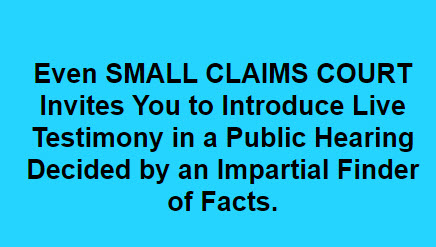Stinky Farts, Stinky Thoughts
The impeachment hearings offer daily fodder to those who struggle to understand how the human mind works. Many people keep expressing frustration about the lies being told by the politicians. That raises the question: Did the brain evolve as a truth-seeking organ? What if the brain's main function is survival, not truth? What if the brain's main function centers on the "Four F's": Feeding, Fleeing, Fighting and Reproduction? What if Truth is only a fragile, occasional, happenstance by-product of the brain's main evolved function?
That brought this Scientific American article front and center: "Did Humans Evolve to See Things as They Really Are? Do we perceive reality as it is?" Here's an excerpt:
One of the deepest problems in epistemology is how we know the nature of reality. Over the millennia philosophers have offered many theories, from solipsism (only one's mind is known to exist) to the theory that natural selection shaped our senses to give us an accurate, or verdical, model of the world. Now a new theory . . . is garnering attention . . . Grounded in evolutionary psychology, it is called the interface theory of perception (ITP) and argues that percepts act as a species-specific user interface that directs behavior toward survival and reproduction, not truth.
Lindsey Graham is now taking the position that the Impeachment is improper because not actual crimes were committed. The Democrats then carted out Graham's 1999 video where he said the opposite. Every human being watching this drama unfold knows all of the following with a certainty:
- Graham meant what he said in 1999.
- Graham means the opposite today.
- Graham won't have much trouble doing some mental gymnastics to justify both positions.
- If a Democrat is impeached in the near future, Graham will revert to his 1999 position.
How is it possible for Graham to justify these diametrically opposite positions? The function of the human brain is well beyond my understanding, of course. At this time, I would simply point out that one's own farts smell OK, whereas the farts of others are unpleasant. There's actually some science on why our own farts smell OK. I would simply extrapolate: Both our farts and our own dysfunctional thoughts get free passes. Why? Because they are our farts and our thoughts, not those of others. And where our entire tribe farts, that's OK too, because it's our tribe and not some other tribe. Our crappy thoughts constitute our theories, meaning that the confirmation bias kicks in like a powerful optical illusion to help us ignore conflicting evidence.
Hypocrisy is an ancient problem, of course. It goes back at least to biblical times:
Thou hypocrite, first cast out the beam out of thine own eye; ... You hypocrite! First, remove the beam out of your own eye, and then you can see clearly to remove the speck out of your brother's eye.
This hypocrisy continues to modern times:Morality is difficult. As [psychologist Johnathan] Haidt writes on his website, "It binds people together into teams that seek victory, not truth. It closes hearts and minds to opponents even as it makes cooperation and decency possible within groups. . . . Morality binds and blinds. The metaphor [Haidt] uses to describe this idea is that we are 90 percent chimp 10 percent bee. That is to say, though we are inherently selfish, human nature is also about being what he terms "groupish."
The hypocrisy we are witnessing might be a little less distressing to the extent that we can accept the fact that the brain did not evolve for truth, but rather for assimilating resources to assist survival, utilizing the power of one's tribe whenever useful. If we can wrap our heads around this scary fact that the brain is much more geared for social power than truth, the impeachment hearings are nothing extraordinary. These hearings are merely more episodes of watching people gathered in tribes fighting for evolutionary fitness. That said, this is an enormous and distressing price to pay in exchange for understanding. But maybe it's . . . . true. Maybe those moments where human minds transcend daily survival pressures to seek consistent principled truth are extraordinarily precious moments that need to be noted and celebrated. Maybe we will never have a society based on truthful principles unless we work hard together. Nietzsche pointed that being able to see truthfully is a moral issue. He wrote that one is truthful only to the degree that one is courageous. Maybe those fragility of those moments where people work hard and self-critically to embrace truth should remind us to appreciate what we have when politicians show the moral courage to act on principle.



